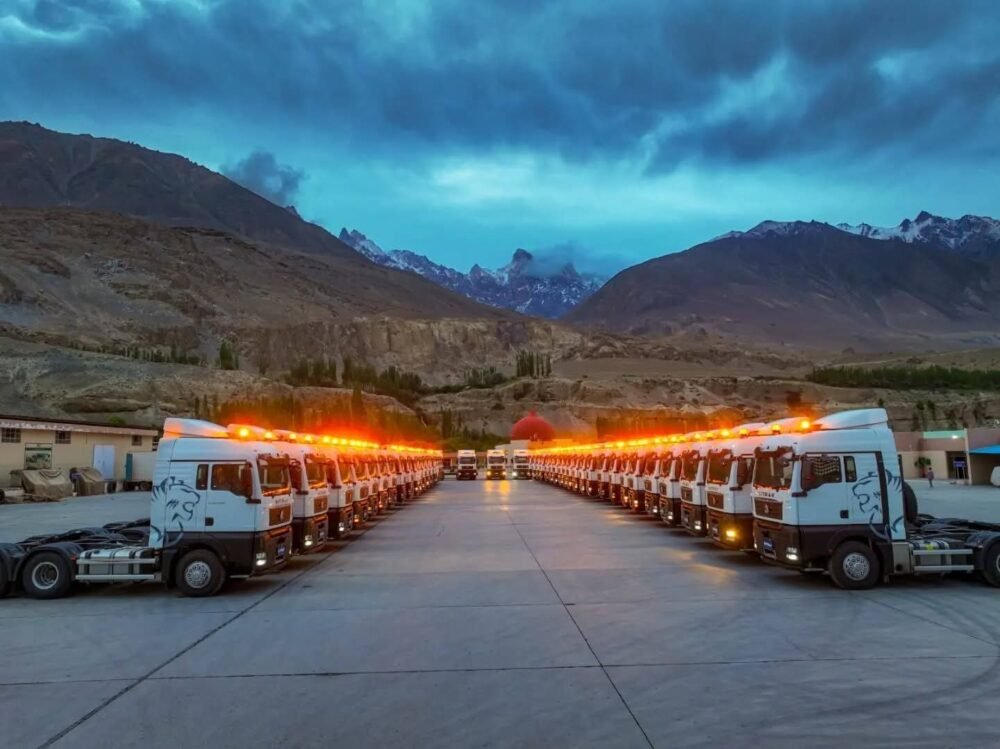From the Luxus Hotel to China Border Trade—A Legacy of Colonial Exploitation
by Farman Baig
Behind the glittering facade of the Luxus Hunza Hotel lies a darker truth—this isn’t just another luxury resort, but a glaring monument to the systemic plunder of Gilgit-Baltistan. The hotel’s controversial establishment in Hunza district serves as a naked display of the colonial-style exploitation gripping this disputed region, where natural resources are ruthlessly extracted while local voices are systematically silenced. The colonial system has, to some extent, succeeded in silencing local leadership through arrests and suppressing genuine political voices.

China border trade, which serves as the backbone of Gilgit-Baltistan’s economy, is a glaring example of this exploitative colonial structure. The National Logistics Cell (NLC) has been forcibly given control, systematically excluding the local people of GB from border trade activities. Goods belonging to local traders at the Silk Route Dry Port Trust (Sost) have been rotting and perishing for over a year due to delays in customs clearance, while NLC vehicles pass through customs unchecked within hours. There is no record of whether NLC is transparently paying taxes or not.
On the other hand, individuals associated with China trade organize protests and sit-ins, ostensibly advocating for the interests of those involved in border trade. However, in reality, the organizers are the same beneficiaries of these unjust policies whose businesses remain largely unaffected. Meanwhile, ordinary traders, whose goods have been lying at Sost Port for over a year, see no resolution beyond paperwork and vague promises—none of which are ever fulfilled. This has deepened frustration among those dependent on border trade.
Moreover, mega projects in Gilgit-Baltistan are awarded to NLC and FWO, while in the tourism sector, government assets are leased for peanuts to companies like Green Tourism. Key economic sectors such as mining are being captured by powerful elites and foreign multinationals in collusion with local influential figures.

At Attabad Lake, sewage from hotels along the shore is being dumped directly into the lake. The powerful mafia behind Luxus Hotel enjoys state patronage, and the temporary action against it is merely a tactic to ease public pressure. Soon, like in the past, business will resume as usual. As for environmental pollution, GB’s fragile ecosystem is suffering irreparable damage due to blatant violations of environmental laws. Despite the plundering of GB’s resources in the name of economic development, the local population sees no benefits. Instead, all economic gains fill the pockets of external capitalists, contractors, and elites, while locals are denied employment, fair trade opportunities, and real participation in development.
The Environmental Protection Agency Gilgit-Baltistan (EPAGB) imposing fines on Luxus Hunza and admitting construction flaws indicates that even the law is powerless against the interests of the powerful. All of this is evidence that Gilgit-Baltistan’s resources are under the control of a non-local colonial power, actively reinforced by government policies and administration.
Against this backdrop, the people of Gilgit-Baltistan must understand that the roots of their problems lie not in individual incompetence or misfortune but in an organized system of exploitation. The local ruling elite and Pakistan’s ruling class are the pillars of this oppressive system. The younger generation must recognize the true nature of this colonial mandate, its tactics, and its illegitimate control over the region’s resources. The path to real change lies in awareness, organized resistance, the restoration of local leadership, and a clear demand for the local population’s ownership and management rights over the region’s resources.

The High Asia Herald is a member of High Asia Media Group — a window to High Asia and Central Asia
